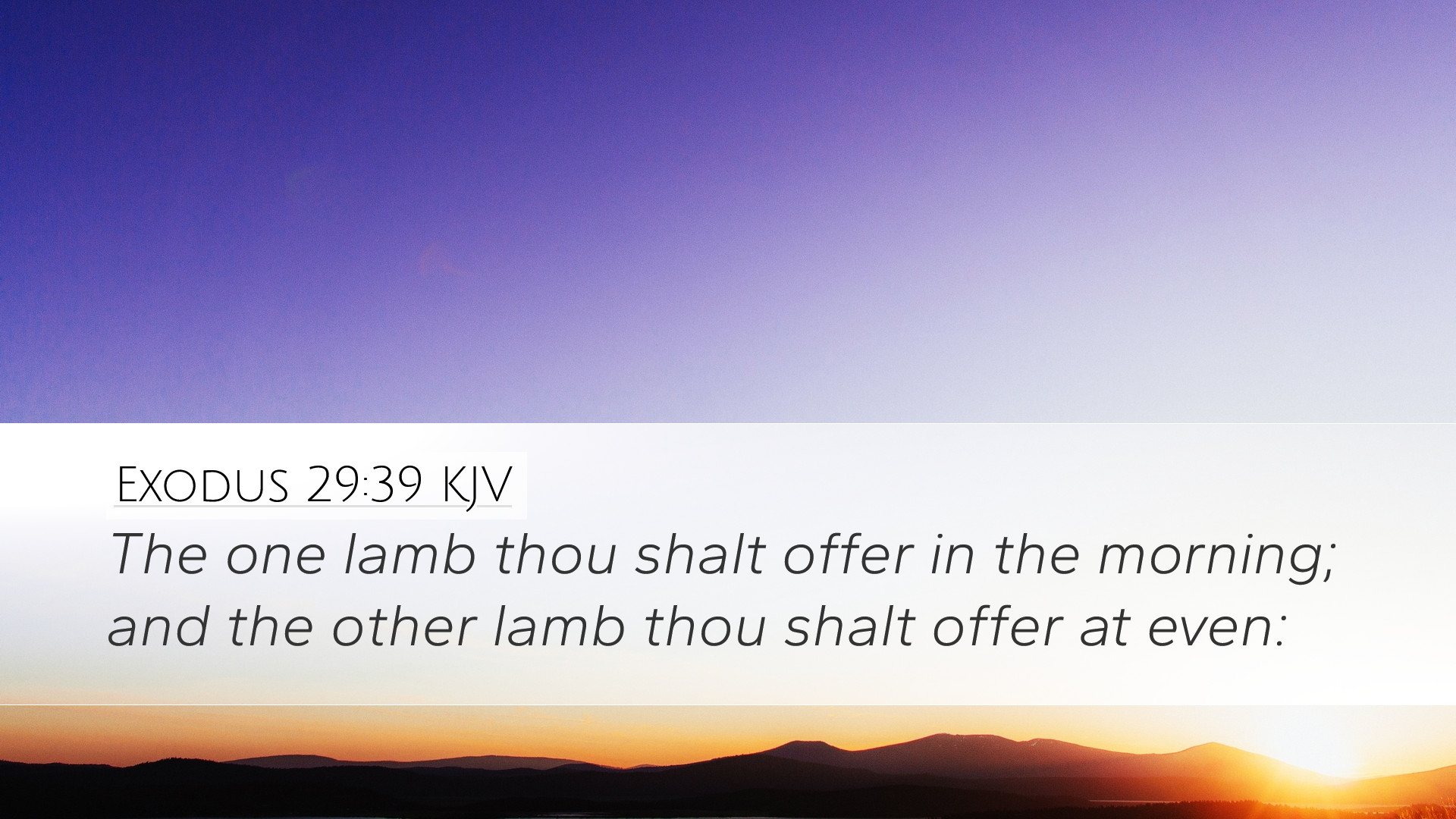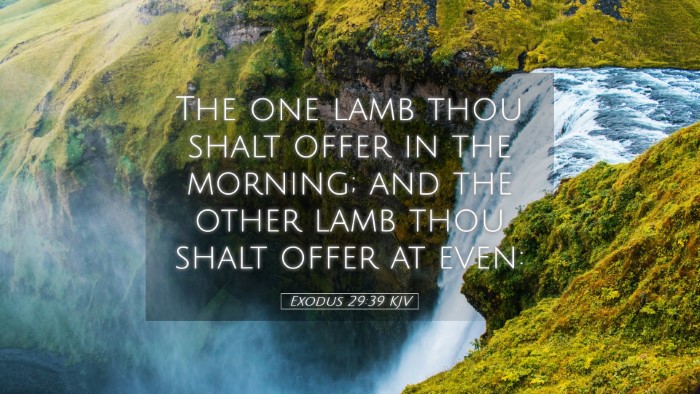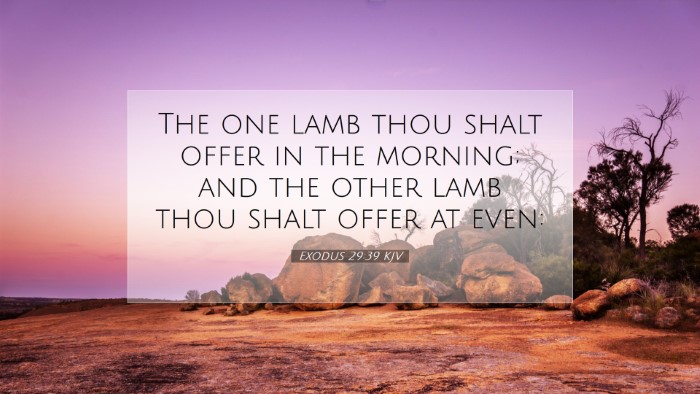Commentary on Exodus 29:39
Verse: Exodus 29:39 - "The one lamb you shall offer in the morning, and the other lamb you shall offer at twilight."
Introduction
Exodus 29:39 serves as a directive from God to the Israelites regarding the daily offerings in the context of their worship practices. This verse encapsulates the routine that was integral to the sacrificial system established for the priests and the nation. Understanding its implications offers deep insights into the nature of worship, sacrifice, and the foreshadowing of Christ's ultimate sacrifice.
Theological Insights
Daily Sacrifices as a Means of Atonement
Both Matthew Henry and Albert Barnes highlight the significance of the daily lamb offerings in relation to atonement and the continuous need for God's mercy in sin. This practice underscores the concept that sin is prevalent in human nature and requires ongoing atonement. The fact that there is a morning and evening sacrifice emphasizes a constant acknowledgement of dependence on God's grace throughout the day.
Symbolism of the Lamb
Adam Clarke draws attention to the lamb as a symbol of purity and innocence. The offering of a lamb, representing unblemished sacrifice, points toward the ultimate sacrifice of Jesus Christ. The duality of the offerings—morning and evening—reflects not only the daily cycle of life but also the comprehensive nature of Christ's sacrifice, which covers all time and circumstance.
Practical Implications for Worship
Consistent Worship
The instruction to sacrifice a lamb every morning and evening suggests a rhythm of worship that can be paralleled with Christian life today. These consistent acts of devotion remind pastors and theologians alike of the importance of integrating worship into daily life. Matthew Henry suggests that such routines cultivate a heart attuned to God throughout every moment.
Preparation and Reflection
The timing of the offerings—the morning and the evening—serves as a framework for personal devotion and reflection. Barnes emphasizes the need for believers to start their day in communion with God, seeking His guidance and blessing, and to conclude their day reflecting on God’s mercy and grace. This structure helps to anchor the believer’s life in the reality of God's presence.
Contextual and Cultural Background
The sacrificial system detailed in Exodus not only symbolizes atonement but also serves as a cultural cornerstone for the Israelites. Adam Clarke notes the symbolism inherent in the act of sacrifice itself—relinquishing something valuable as an act of worship. This cultural significance is crucial in understanding how these sacrifices would have shaped communal and individual identities of the Israelites, creating a strong sense of belonging and covenant with God.
Instruction to the Priests
Exodus 29 details the installation of the priests, with this sacrificial system being central to their ministry. The regularity of the lamb sacrifices emphasizes the ongoing role of the priest as an intermediary between God and the people. Matthew Henry emphasizes that this system not only teaches the necessity of a mediator but also points forward to the ultimate Priest and Sacrifice in Christ.
Conclusion
Exodus 29:39 provides a multi-dimensional view of God's plan for worship, sacrifice, and atonement that is rich with theological insights. The daily offerings of the lamb in the morning and evening serve as a reminder of both the systemic nature of sin and the overwhelming grace of God that covers sin through continual sacrifice. This routine of sacrifice prepares believers today to understand the depth of Christ's atonement, cultivating a lifestyle of worship and dependence on God's grace.


